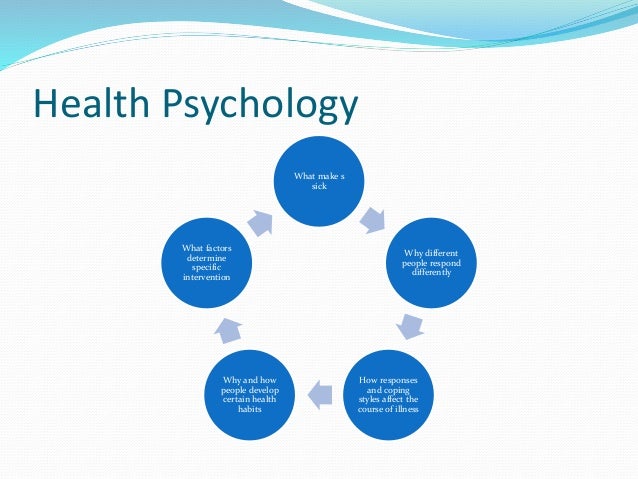So what is Health Psychology?
How do we reduce the obesity crisis? How can we help people adopt better diets? Why do some people struggle to maintain a healthy weight? How do chronic conditions impact individuals wellbeing?
Simply put, health psychology is the promotion of health and the prevention of illness, with the ultimate aim of helping individuals and populations achieve better healthier lives.
Health psychologists study how a variety of factors can influence our health, this is known as the Biopsychosocial model. For example, someone may have high blood pressure, making them susceptible to CHD. Along with the standard biomedical explanations for high blood pressure (bio), the individual may also be experiencing high work stress with little support (social) and may have a poor coping style for managing such stressors (psycho). So we can see how many factors are impacting the individuals health outcomes.
Thus, Health psychologists explore how different factors can influence our health and wellbeing, directly by impacting our physiology and indirectly through influencing our behaviours and attitudes. With this knowledge, we can then develop better interventions for targeting the biggest factors affecting our modern health outcomes.
Health psychologists may then focus on studying and developing interventions for lifestyle risks such as
- Stress reduction
- Weight management
- Smoking cessation
- Improving nutrition
- Reducing risky sexual behaviours
- Hospice care and grief counselling for terminal patients
- Preventing illness
- Understanding the effects of illness
- Improving recovery
- Teaching coping skills
Along with helping people maintain a healthy weight, avoid unhealthy behaviours and maintain a positive outlook to reduce stress. Health psychologists may work to help educate other health professionals to better incorporate psychological approaches into how they treat patients and improve their health outcomes.
If you are interested in learning more about health psychology and if it could help you, visit BPS Health psychology


Comments
Post a Comment